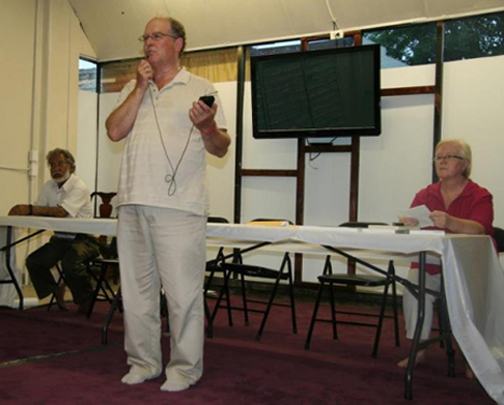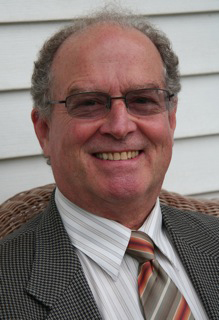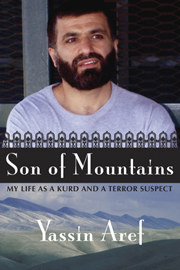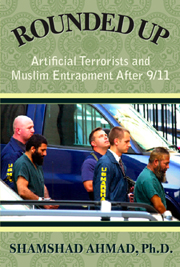Download a pdf copy of this article
The Albany Speech Police
by Stephen Downs, Esq.
On August 21, 2012 I had my first encounter with the Albany Speech Police. I was hosting lunch in an Albany, New York restaurant with Dr. Shamshad Ahmad, president of the Masjid As-Salam mosque on Central Avenue, and two civil rights advocates from New York City who came to Albany to meet with us. During our lunch, we discussed the 2004–2006 Albany terrorism case of Yassin Aref and Mohammed Hossain, which has come to represent the post-9/11 decade of excessive government surveillance, informants, secret evidence, entrapment, and injustice. While Dr. Ahmad was describing the 2004 FBI raid on his mosque that culminated in the arrests of Aref and Hossain, four Albany police officers suddenly approached our table and asked us to step outside, where we were immediately confronted with additional police officers and squad cars. They asked us, “What were you talking about in the restaurant?” One officer indicated that an eavesdropper had filed a complaint––although no one else was in the restaurant at the time of our conversation. Dr. Ahmad was questioned separately, as though to test the consistency and truthfulness of our answers, and was also asked whether we had discussed the “present political situation.” When we said we were discussing the Aref-Hossain case, the officers asked no more questions about our conversation, but over our objections they insisted on recording our personal identifying information for a “report.” The encounter left me feeling “dirty,” as though I had just been bullied and subjected to something dishonest.

Steve Downs, as MC with Shamshad Ahmad and Catherine Callan, 8th anniversary commemoration of the arrests of Yassin Aref and Mohammed Hossain, held at the Masjid As-Salam mosque , photo by Jeanne Finley
First, it is apparent that this incident was a clear violation of free speech. There is no reason why we should have been asked to reveal or discuss our private conversations with the police (or with any governmental authority). The police claimed that a complaint about our conversation was filed by someone in the restaurant, but this seems highly unlikely. The restaurant, one block from the Masjid As-Salam, is owned and operated by people who attend the mosque. The owners know Dr. Ahmad, and it is inconceivable that any of them or the people who normally patronize the restaurant would file a complaint against a respected leader like Dr. Ahmad or his luncheon partners. Moreover, soon after we came in, all the other diners left. We were alone in the restaurant for virtually all of our conversation. Thus the reason given by the police for violating our free speech appears bogus.
Second, it can be argued that this incident is an example of profiling. If two white couples had been discussing the Aref-Hossain case in a restaurant, would the police have intervened? Until Muslims and people of color became particular targets of profiling in this post-9/11 decade, who would have thought that the police, like Gestapo officers in Casablanca, would demand to know the private conversations of restaurant patrons? Exaggerated fears of Islamic extremists engage the government’s attention in ways that other, far more dangerous threats do not: white hate groups, for example, which pose a far greater danger, are usually ignored. The police encourage eavesdropping and snitches against Muslims and people of color because these groups are still seen as less American and less entitled to the same freedoms that the rest of us enjoy.
But if this was an example of profiling, it still does not explain why we were targeted in what was essentially a Muslim restaurant in an ethnic section of the city. So a third, more disturbing possibility is that the police intervened to question our group and obtain our identities because of a request from a government agency, such as a fusion center. These centers have been created as places where federal, state, and local law enforcement agencies can share information and request assistance. Former FBI agent Mike German has described them as organizations that “work proactively to seek out, identify and ‘neutralize’…political opposition to the state and the corporate and financial interests it serves.” German notes that local law enforcement is now used as a weapon against anti-establishment politicians, activists, and political organizations––in short, state and local law enforcement is now fully integrated into a larger political secret police apparatus.[1]
Was it a coincidence that we were pulled out of a restaurant by a squad of officers on the same day that two civil rights activists from New York City came to Albany to talk to us? For years, the New York City Police Department (NYPD) has engaged in illegal surveillance and mapping of the Muslim community there––which the commanding officer of the NYPD Intelligence Division has now admitted uncovered no leads to any terrorist conduct. Instead, it massively violated the rights of law-abiding Muslims. (For example, the NYPD actually followed and conducted surveillance of Muslim students and others after they left New York City to go to college, including a Muslim Student Association group that took a rafting trip upstate). Could the NYPD have asked the local fusion center to have the Albany Police follow people about whom the NYPD wanted information and personal identification? Is that why the Albany Police invented a bogus reason for interrogating us, in order to learn our identities? And did they file a secret “suspicious activity” report with the fusion center to keep track of the people with whom we were meeting? We don’t yet know the answers to these questions.
Once information of this kind is shared through fusion centers with local and state police, the FBI, the CIA, and other agencies, there is no way to know how these agencies might then use the information to create unjustified “associations,” inferences, or even conspiracies. The danger of secret information being misused and misinterpreted to arrive at erroneous conclusions, which the targets have no way of correcting, is obvious.
Knowing that the police are not protecting you, but instead are following, profiling, and targeting you unfairly, as they do in police states, raises genuine fears. If we are fighting the war on terrorism by terrorizing our own citizens through unjustified surveillance, profiling, bogus police stops, secret evidence, and violations of free speech and free association, the war is already lost.
[1] Press TV, “Ex-FBI Agent: U.S. Government Targets Americans for Political Views,” 8/27/2012.
Bio of writer:
 Stephen F. Downs (26 Dinmore Rd., Selkirk, NY 12158, swdowns68@aol.com, 518-767-0102), former Peace Corps volunteer in India, 1964-66, was the former chief attorney for the New York State Commission on Judicial Conduct until he retired in 2003, shortly after he was arrested for wearing a peace T-shirt at Crossgates Mall. He was a member of the defense team for Yassin Aref in 2006, and a founding member of the Muslim Solidarity Committee, formed after Aref and Hossain were convicted to care for the families of the defendants. In 2009, Downs was a founding member of Project SALAM, which documents and advocates against preemptive prosecution and prisoner abuse. In 2010, Project SALAM became a member, along with 18 other Muslim and civil rights organizations, of the National Coalition to Protect Civil Freedoms (NCPCF), which advocates against preemptive prosecution, profiling, and prisoner abuse. Downs is currently interim executive director of NCPCF.
Stephen F. Downs (26 Dinmore Rd., Selkirk, NY 12158, swdowns68@aol.com, 518-767-0102), former Peace Corps volunteer in India, 1964-66, was the former chief attorney for the New York State Commission on Judicial Conduct until he retired in 2003, shortly after he was arrested for wearing a peace T-shirt at Crossgates Mall. He was a member of the defense team for Yassin Aref in 2006, and a founding member of the Muslim Solidarity Committee, formed after Aref and Hossain were convicted to care for the families of the defendants. In 2009, Downs was a founding member of Project SALAM, which documents and advocates against preemptive prosecution and prisoner abuse. In 2010, Project SALAM became a member, along with 18 other Muslim and civil rights organizations, of the National Coalition to Protect Civil Freedoms (NCPCF), which advocates against preemptive prosecution, profiling, and prisoner abuse. Downs is currently interim executive director of NCPCF.
Read Daily Gazette Carl Strock's column on this incident, published on September 2, 2012

